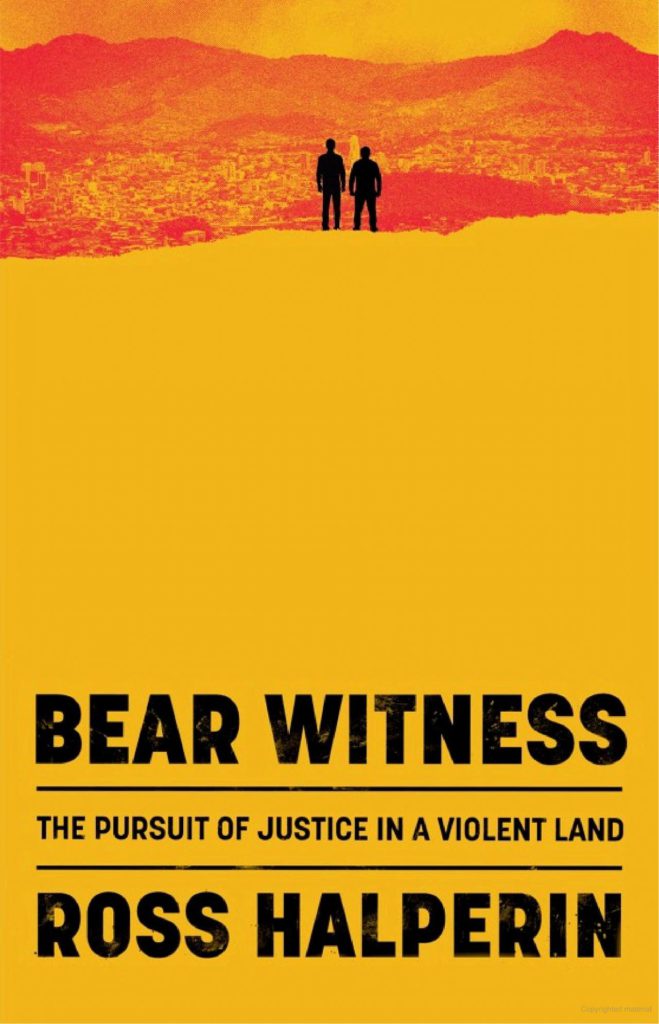Each week, when members of the Rotary Club of Los Gatos rise to say the Pledge of Allegiance, we reaffirm our commitment to the country and our community. It is a meaningful ritual, but I believe we have room—indeed, a responsibility—for something more. After the Pledge, one of our Rotarians provides a brief speech: something to inspire us all to pursue higher ends. It is intended as a short reflection grounded in the values that define us, especially the Four-Way Test. That moment could be a story, a quote, a humorous anecdote, or a lesson in service, character or courage.
One source of inspiration that recently moved me deeply is the book Bear Witness: The Pursuit of Justice in a Violent Land by Ross Halperin. The book profiles a group of courageous individuals—judges, prosecutors, investigators, journalists, attorneys, private investigators, missionaries and community leaders—who are fighting to uphold the rule of law in Honduras, one of the most dangerous and impoverished countries in the world.

Halperin chronicles the lives of these courageous individuals who risk their safety to pursue justice in a nation dominated by fear and impunity. He recounts how prosecutors, judges and journalists—often under threat from powerful criminal networks—choose to speak the truth despite overwhelming pressure to stay silent.
One story describes a public official whose investigation into corruption put their life in danger. Another tells of a journalist who refused to stop reporting, even after colleagues were killed. Repeatedly, the book shows us that bearing witness is not about heroism for its own sake—it is about refusing to surrender to despair. Halperin introduces us to men and women whose courage cannot be overstated.
These stories are not easy to read. In Halperin’s pages, we see a society struggling to function amid widespread impunity, where organized crime, political corruption and a culture of fear threaten the very idea of justice. And yet, amid this darkness, individuals still choose to stand up. They act. They speak. They bear witness.
Their choices remind me of something we too often forget: courage is not a dramatic moment. It is often quiet, daily and deeply personal. And it is essential—not only in a country like Honduras but in every community, including our own.
We may not face death threats for telling the truth, although sadly, this danger is becoming more prevalent. But we do face moral decisions—about whether to speak up when something is wrong, whether to stand with someone who is marginalized, whether to pursue fairness even when it’s inconvenient or unpopular. These, too, are acts of bearing witness.
Rotary gives us a framework to do just that: the Four-Way Test.
- Is it the TRUTH?
- Is it FAIR to all concerned?
- Will it build GOODWILL and BETTER FRIENDSHIPS?
- Will it be BENEFICIAL to all concerned?
These questions challenge us to live with integrity and courage. They are easy to recite, harder to live. In Bear Witness, we see the real cost—and real reward—of living by those principles.
Beginning each Rotary meeting with a brief, reflective moment helps us internalize the Four-Way Test as a way of being. We can lift stories like those Halperin tells—stories of principled action in impossible conditions. Or we can share stories from our own town: a neighbor who stepped in, a student who spoke up, a volunteer who showed up. These are moments that matter.
What Halperin’s book makes clear is that change begins with people who care enough to see and are brave enough to act. As Halperin illustrates throughout Bear Witness, justice is not only a legal construct—it is a moral commitment. Repeatedly, the book shows how ordinary people, when confronted with systemic violence and fear, make extraordinary choices to stand for what is right, even at great personal risk.
That kind of moral will is what I hope we continue to nurture at Rotary. We don’t need to be prosecutors or judges to play a role in justice. We can write, vote, advocate, support and serve. We can listen to voices that go unheard. We can choose to speak when others remain silent.
I hope we can all draw strength from the brave and inspiring people Ross Halperin writes about and remember that the pursuit of justice does not begin somewhere else. It begins with us.










